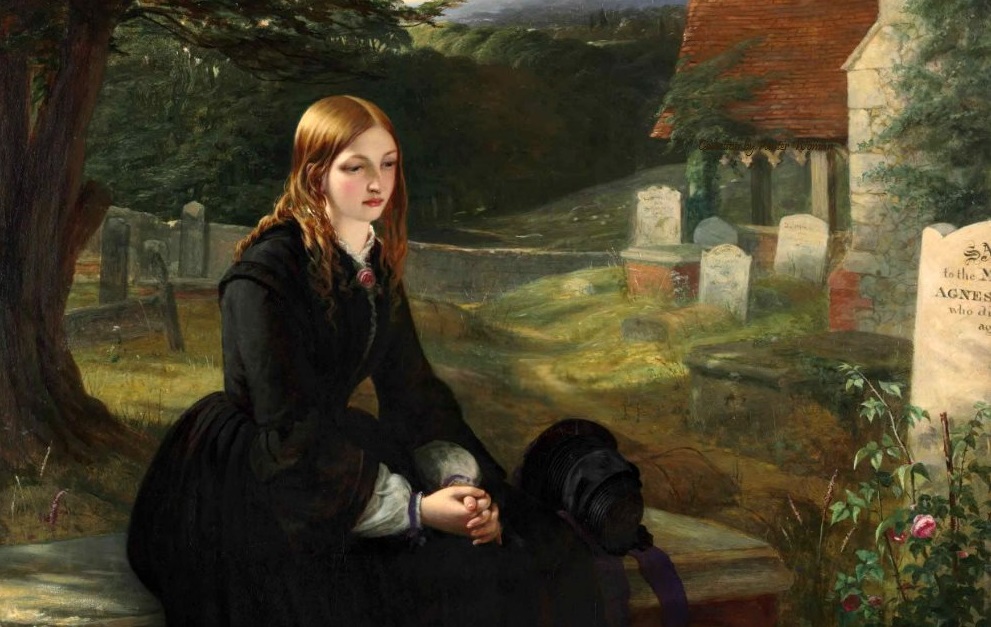The Coworker
A “need-to-know” it’s called in Personnel
and I’m just high enough to need
to know she’s going through that quiet hell
of watching someone’s life she loves recede.
A bit more hollowed every day, a bit
more bleakly by his suffering obsessed,
she does her work, she types, she talks, she sits
through meetings. People think she’s simply stressed.
Though what I think I really need to know
is how we humans do this thing at all:
this love, this pain, this patience in the throes
of fate and faith, our back against the wall.
How she can cherish this life or the next
while waiting for the phone call or the text.
The Day Will Come
The day will come when Beauty is restored
to us, so quietly yet utterly
beside itself our famished eyes will toward
its giddy silence barely turn to see.
But of a sudden purple tulips on
a May-lit morn a deeper bloom will don;
a cricket chirping neath the hush of rain
will take on tones of heavenly refrain.
When Beauty’s finally had enough and casts
away its shackles forged of intellect and will,
we’ll feel again the human body thrill
and know the greyness in our soul has passed.
And on that day when Beauty sings its song
I’ll whisper how I’ve loved you all along.
Jeffrey Essmann’s prose work has appeared in the New York Times, the Washington Post, and numerous magazines and literary journals, his poetry in America Magazine and Dappled Things. He lives in New York City.
















Very beautiful work Jeffrey, very beautiful indeed!
Forgive my one obsessive and truly minor suggestion.
In the next to last sentence of “The Coworker” ‘our backs against the wall’ would have read a bit more smoothly.
Excellent work nonetheless.
Thanks for such a close reading, Joe, and for your kind words. Note taken.
Thanks for the fix, Joseph, and for your kind appreciation of my work.
“The Coworker” is a fine sonnet — well constructed, believable, and profoundly sympathetic in its depiction of pain. But like Joe Tessitore, I must offer one suggestion for improvement.
Line 2 is in tetrameter, unlike the rest of the poem, which is in iambic fives. It stands out like a sore thumb, and could easily be fixed. Here’s a possibility:
And I’m just stationed high enough to need
A fix of this nature would also reinforce the idea (only implicit in the poem now) that the speaker is in some sort of supervisory capacity to the girl being discussed.
“The Coworker” is beautiful and moving. Having been that coworker, I think it rings very true.
Lovely sonnets, Jeffrey! Thank you for sharing them.
To nitpick, line 4 of the Co-Worker is ambiguous. “of watching someone’s life she loves recede,” as written, means that she loves someone’s life, when I think you meant to say that she loves someone whose life is receding. And “neath” here were better rendered “‘neath,” the apostrophe indicating the missing “be-“.
In “The Day Will Come” lines 2 & 3 present a grammatical problem. Is “Beauty” beside itself, or are “our famished eyes” beside themselves. The latter seems more natural, and therefore, as written, there is a problem of number. Either way you intended it, what the hell is “giddy silence?”
These are beautiful sonnets Jeffrey. I especially enjoyed the concluding lines of “The Day Will Come”:
And on that day when Beauty sings its song
I’ll whisper how I’ve loved you all along.
Wonderful poetry. Thank you.
Jeffrey, Hello.
First poem. 1. I was going to make the comment that Mr. Anderson made about line 4, but he beat me to it. 2. The last two lines seem like they are out on an island. You could turn them into a sentence by putting a question mark at the end of the last line. Or you could put a comma after “wall” and a small “h” in “How.” This would make it a continuation of the list of things that the narrator needs to know how we humans can do.
Second poem. 1. I notice that each of the quatrains (i.e., lines 1-4, 5-8 & 9-12) has a different rhyme scheme. That is unusual, but interesting. 2. There is a line where there is an inversion to make the rhyme, but when you “un-invert” the line and read it as prose, it doesn’t really make sense to me. Here is the line “un-inverted”:
Our famished eyes will barely turn to see toward its giddy silence so quietly yet utterly beside itself.
3. Another line that caught my attention is:
But of a sudden purple tulips on
a May-lit morn a deeper bloom will don;
If I turn it into prose, it reads like this: “But tulips will don a deeper bloom of a sudden purple on a May-lit morn.” There is so much inversion in this line that it took a great deal of effort to translate the line into a comprehensible form. You do such a great job on all the other lines. I just prefer the more straight forward line, as opposed to the pretzel or the treble clef.
Both poems. 1. I am so pleased to see that someone shares my preference for not having a capital letter at the beginning of every line. 2. These are excellent poems! Well done!
Mark,
I thank you for your incisive analysis of what makes so much “poetry” an utter muddle.